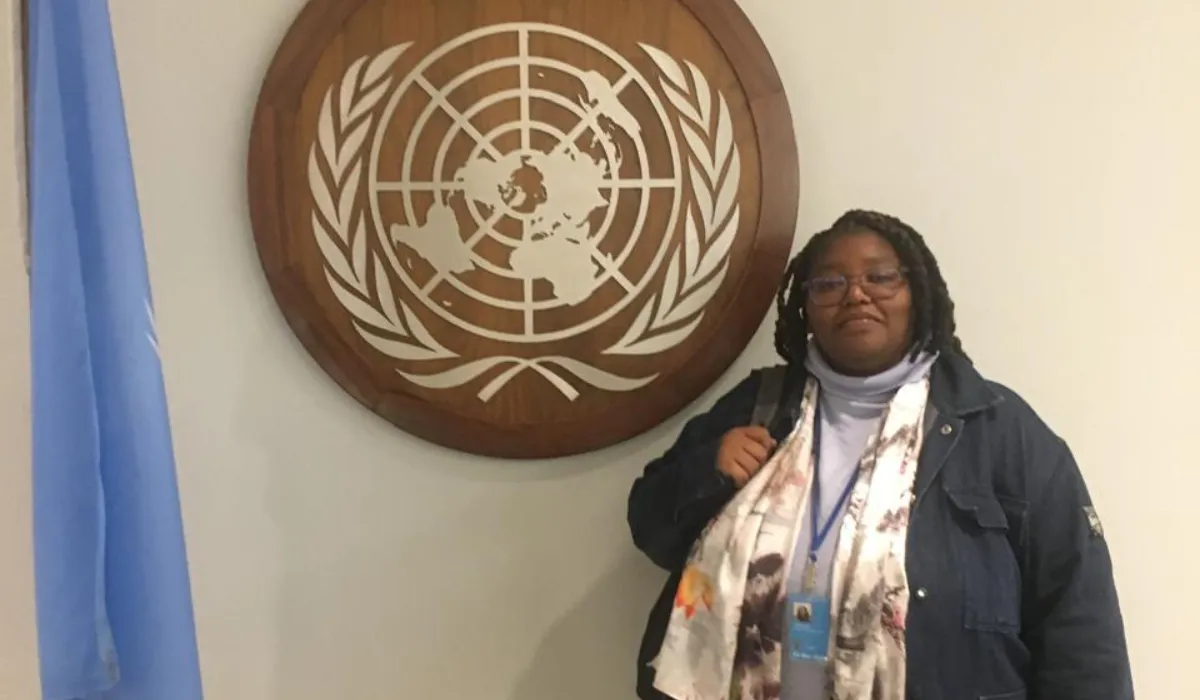Rumbidzai Chidoori recently participated in the 68th session of the Commission on the Status of Women (CSW68) in New York, representing Sonke Gender Justice and MenEngage Africa. Rumbi takes note of her experience and valuable knowledge she gained from her attendance of the forum from the 11th to the 22nd of March. In this reflection, she expands on her personal insights and important takeaways. Chidoori currently serves as the Regional Policy & Advocacy Coordinator at Sonke Gender Justice. She is a feminist and human rights activist with extensive experience in policy and advocacy work in the women’s rights sector at regional, national and international levels. She advocates for the implementation of legal instruments that protect women’s rights, actively engages in campaign work for vulnerable groups, and conducts rights education training for communities at local level. Chidoori has written several submissions on policy matters and has published various articles in various media including peer reviewed journals.
What was it like attending the conference in New York and what was your favourite experience or moment at CSW68?
As a feminist and as an advocate, having the opportunity to influence policy and language at that level is very fulfilling. CSW 68 is the premier global women’s rights policy space where women’s rights is set for all member countries, so I don’t take it lightly; being able to be in that space is a privilege. My favourite moments are being able to interact, network, and engage with various women’s rights activists from all over the world, being able to learn how to do advocacy in different ways, and learning how to engage duty-bearers.
Do you think the place is welcoming to all young people, in all their diversity?
I believe so. To a greater extent, young people can be part of the conversations, to influence, to be heard, and to use their agency, although I think more could be done in terms of enabling young people to be involved in the negotiations, which is a space in which even CSOs are not always given access.
Recently, there has been an upsurge in anti-rights movements and opposition. What are some of the measures that civil society may use to push back?
Part of the ways in which civil society can be able to push back with regard to opposition is to be better organised to mobilise better collectively, to ensure that we are present in the spaces where women’s rights are engaged and be able to push back, to expand the language and ensure that provisions that support and advance women’s SRHR rights are included in policy documents, and to ensured that duty bearers understand their duty or understand their responsibility and obligation to ensure that women’s access to SRHR is respected and promoted. It is also important to monitor these anti-rights movements and share information with other civil society organisations to ensure that they don’t get co-opted by these groups and to be able to call them out. Some of these actors like to operate in secrecy or behind the scenes, influencing our policymakers negatively. It is important to be transparent and accountable.
What lessons did you take from the CSW68
A key takeaway is the importance of working as a collective and the importance of being present in the space to stand guard against those that threaten to take back the gains that we’ve made over the years and being able to expand on those gains as well. We cannot wait 300 years for gender equality; we need to see gender equality in our lifetime.
How would the experience you’ve gained inform your advocacy work going forward?
As part of the women’s rights caucus working group On language and advocacy, I will definitely take the experience used in the negotiations of the agreed conclusions to influence policy development at the national level. It is key to remind policymakers of their obligations with respect to women’s rights.
In your opinion, what are difficulties faced by youth activists in this field?
I think firstly that being in the room CSW is not an easy space to access, especially when you think about getting visas and travelling to New York, which is very expensive. There’s not always adequate funds for young people to travel to New York. There are so many bottlenecks with regards to access to the space that once you are there, there is restricted access to the negotiation rooms with state parties.
What topics would you want to see more of at CSW?
I would like to see the expansion of SRHR and CSE, unpaid care, and the care economy, including positive parenting and respect for women’s bodily autonomy.
Please share any additional comments, thoughts, suggestions for the upcoming CSW68
I think the venue for CSW needs to change as well, or at least be rotated, so that CSW can also take place in different regions, like Africa, for instance. This is to enable activists, mainly from the global south, to also participate meaningfully in CSW.


